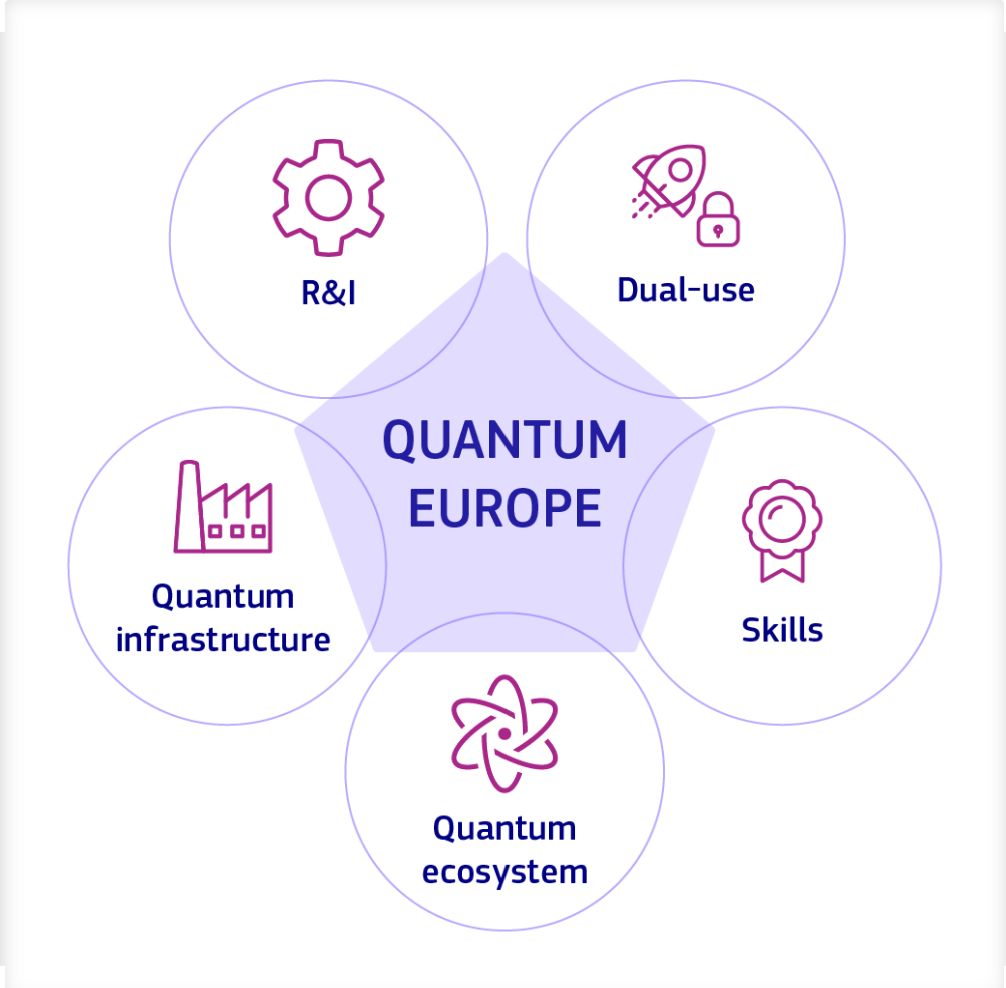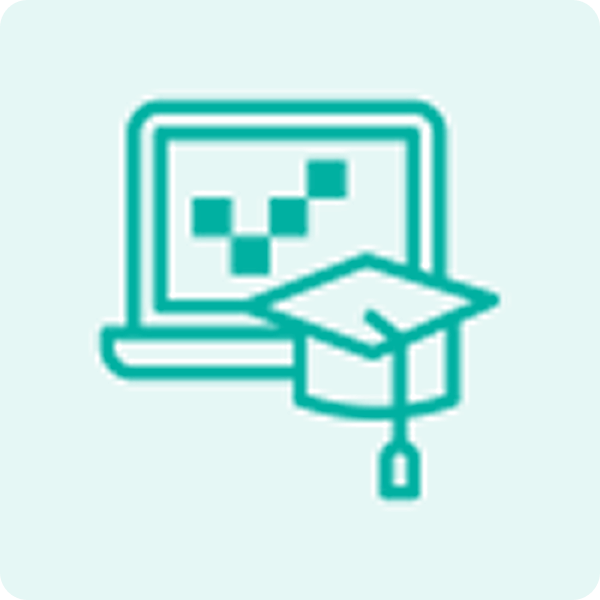Commission launches Quantum Europe Strategy to turn EU into a Quantum Powerhouse by 2030

The European Commission launched a new strategy on 2 July 2025, aiming to secure European leadership in quantum technology - now, and in the future. The strategy sets the EU on course to become a global powerhouse for quantum innovation by 2030.
Offering a blueprint of concrete steps and measures to support a resilient and sovereign quantum ecosystem, the EU Quantum Strategy charts several ways forward that build onto the excellence of European scientific leadership across disciplines.
Background and context: a quantum world, byte by byte
Quantum technology is the future. Fascinating and profoundly exciting, advances in the area promise to revolutionise the world, starting from key societal sectors like medicine or critical infrastructure. According to projections of the Commission's Joint Research Centre (JRC), thousands of highly skilled jobs in the quantum area will open up by 2040, while the sector's estimated value by 2040 is expected to grow to over €155 billion in value. Quantum seems crucial and quite narrowly connected to the 2030 targets of the Digital Decade: Mario Draghi's 2024 report on EU competitiveness referred to quantum as “the next trailblazing innovation in the computing field, which could open new opportunities for the EU’s industrial competitiveness and technological sovereignty”.
Currently, close to 450 companies operate in the quantum field, and 32% of these being located in Europe. What is more, over half of EU companies active in the sphere were set up after 2019, reflecting innovation at its finest, and a strong EU capacity to lead future quantum breakthroughs.

What is quantum?
Quantum technology is based on quantum mechanics - the science of very small things like atoms, electrons and photons (particles of light). If we zoom in and look at things at the level of individual atoms, the quantum world looks very different from the one we know: and quantum theory suggests that what we experience as humans is in fact the product of vast numbers of those particles acting together.
Quantum computing allows scientists to change the state of a particle - and these changed states can then add up to form a brand new state - imagine a calculator adding up 2 numbers to make a sum. Quantum theory calls this "quantum entanglement" - the idea that two objects are not really separate entities, but actually part of the same thing. Hence, when we try to touch or measure one object, we invariably change the other one too. Translating this into real-world terms, scientists all over the world are looking at various ways to exploit these properties to enable the development of new types of algorithms that would be otherwise impossible to achieve via even the most high-performance computer.
This jump in computing power could revolutionise personalised healthcare. In genomics for example, quantum computers could analyse DNA extremely quickly and help develop treatments or cures for diseases tailored to individual patients.
About the strategy

The strategy focuses on 5 key and interconnected areas for European economy, critical for both sovereignty and competitiveness in tech:
1) Research and innovation
2) Quantum infrastructures,
3) Ecosystem strengthening - through investments in start-ups and scale-ups.
4) Space and dual-use technologies, and
5) Specialised quantum skills.
Building a diverse workforce with the capacity to compete and succeed on a global scale is not mission impossible: rather, it rests on coordinated actions across areas like education, training, and skills mobility from one EU Member State to the next.
Naturally, talent development underlines virtually all other aspects of the Strategy: advances in quantum are going to change the world - yet, European leadership and hence, sovereignty in tech, is critically dependent on enriching the quantum talent base in Europe with skilled specialists with advanced tech competencies. EU plans include the establishment of a virtual European Quantum Skills Academy, offering pathways to master's and doctoral degrees, and the launch of several mobility programmes for specialists. Specific initiatives are also aimed at retraining existing professionals and engaging young minds in quantum technology through competitions and projects.
Summary: main actions planned under the Quantum Europe Strategy
- Launching a new Quantum Europe Research and Innovation Initiative, a joint effort between the European Union and Member States' to support the research and development of applications across key public sectors and industrial areas.
- Launching a pilot facility for the European Quantum Internet; expanding the existing network of Quantum Competence Clusters in Europe, and launching a European Quantum Skills Academy in 2026.
- Setting up a quantum design facility and 6 quantum chips pilot lines, backed by up to €50 million in public funding, in order to enhance processes of turning scientific prototypes into concrete, manufacturable and market-ready products.
- Constructing a Quantum Technology Roadmap in Space in collaboration with the European Space Agency and contributing to relevant efforts in the area.
Solidifying EU leadership in quantum: existing initiatives
The EU has a strong, long-standing track record in quantum excellence. The Quantum Technologies Flagship, launched back in 2018, brings a total budget of over €1 billion to enhance collaboration between research institutions, industry partners and public funding bodies to reinforce and boost EU scientific leadership in this field.
Initiatives like the EuroHPC Joint Undertaking (EuroHPC JU) equally support cross-border collaboration between the EU and participating countries, helping to pool resources and stimulate quantum advances throughout the EU's regions. In June 2023, the first EuroHPC acquired quantum computer, PIAST-Q, was inaugurated in Poznan, Poland. PIAST-Q is 1 of 8 quantum computers the EU has at its disposal. A full list can be found here.
Funding under key Commission support programs and schemes, such as Horizon Europe and the Digital Europe Programme, plays a major role in opening up training and employment opportunities in the quantum sphere. The DIGITAL-funded QTindu project is developing a pan-European short-term training program in Quantum Technology, launching also upskilling opportunities and training specifically tailored to the needs of SMEs across business sectors. Also funded by the same programme, DigiQ (Digitally Enhanced Quantum Technology Master) is another project that aims to provide accessible training for those interested in acquiring specialised skills in quantum technology.
Further reading
Find more information on the European Quantum Strategy on the European Commission's dedicated section for the strategy. You can download the Communication on the Quantum Europe Strategy via here, and find Questions and Answers on the Strategy here. There is also a Factsheet with statistics of the state-of-play with quantum in Europe and the projected impact of the Strategy.



